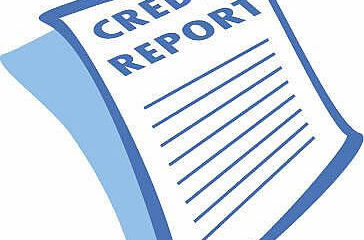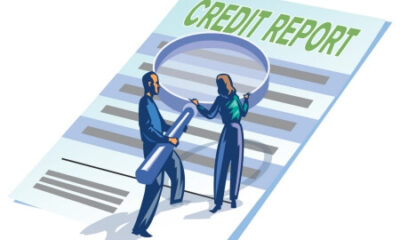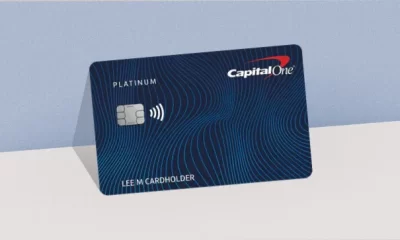Uncategorized
Fedex Office Settlement
FedEx Self-Service Kiosk Credit Card Receipt Class Action Settlement
FedExOfficeSettement Claim Instructions
- Review class member requirements via the FedExOfficeSettlement FAQ page
- Please do not file a claim unless you meet the requirements
- If you qualify please visit https://www.fedexofficesettlement.com/
- Claims must be submitted no later than March 8, 2019
- Remember: you are submitting your claim under penalty of perjury
What does the FedEx Office settlement provide?
“FedEx Office has agreed to provide a Stored Value Card worth: (1) $25.00 to each Class Member who timely and properly submits a Claim Form with an original or copy of an electronically printed FedEx Office receipt printed between January 2017 and August 2017, displaying the first two and last four digits of their credit or debit card number; or (2) $10.00 to each Class Member who timely and properly submits a Claim Form without an original or copy of an electronically printed FedEx Office receipt.” – www.fedexofficesettlement.com/frequently-asked-questions
Any questions in regards to the FedExOfficeSettlement can be directed to toll-free 1-866-447-6217.
Class members who file valid claims will be represented by Hallie Von Rock & Brent Robinson from the law firm of AIMAN-SMITH & MARCY and Anthony Orshansky & Justin Kachadoorian from the law firm of COUNSELONE PC.
FedExOffice Settlement Fairness hearing will take place on or around 3/29/2019.
The hearing will take place at San Bernardino County Superior Court, 247 West Third Street, San Bernardino, CA 92415 at 8:30 AM.
Settlement Website

Uncategorized
Mortgage Rates in 2025 – What Homebuyers Need to Know Now
As we close out the first quarter of 2025, the financial landscape for prospective homebuyers is shifting, and mortgage rates are at the heart of the conversation. If you’re dreaming of owning a home or refinancing your current mortgage, understanding where rates stand today—and where they might be headed—can make or break your financial planning. At Free Credit Insights, we’re committed to keeping you informed about the latest trends impacting your wallet. Let’s dive into the current state of mortgage rates as of March 31, 2025, and what it means for your credit and homeownership goals.
Where Are Mortgage Rates Today?
According to recent data highlighted by CNET Money, mortgage rates as of March 31, 2025, reflect a dynamic market influenced by economic policy, inflation, and global events. While exact daily figures fluctuate, the average 30-year fixed mortgage rate has hovered around levels that are slightly lower than the peaks seen in late 2024, thanks to subtle shifts in the Federal Reserve’s monetary stance. For context, Bankrate’s aggregated data shows that rates have eased from their highs but remain elevated compared to the ultra-low rates of the early 2020s. This moderation comes as the Fed has signaled a cautious approach to rate cuts, balancing inflation control with economic growth.
For example, a week ago, the average 30-year fixed rate was reported at approximately 6.5%, down from 6.7% earlier in March, per CNET’s analysis. Meanwhile, 15-year fixed rates, popular among refinancers, sat closer to 5.8%. These numbers aren’t set in stone—daily changes are driven by lender competition, Treasury yields, and investor sentiment—but they give a snapshot of a market that’s cooling off slightly yet still challenging for borrowers with tight budgets.
Why Rates Matter to Your Credit
Your credit score plays a pivotal role in the mortgage game, and at Free Credit Insights, we can’t stress this enough. Lenders use your score to determine not just your eligibility but also the interest rate you’ll lock in. A difference of even half a percentage point can translate to thousands of dollars over the life of a loan. For instance, on a $300,000 mortgage at 6.5% over 30 years, you’re looking at roughly $682,000 in total payments (principal plus interest). Bump that rate to 7%, and the total jumps to over $718,000—a $36,000 difference tied directly to your creditworthiness.
With student loan delinquencies re-entering credit reports in 2025 (more on that later), maintaining a strong score is more critical than ever. Missed payments or high credit utilization can drag your score down, pushing you into a higher-rate bracket. The good news? Free tools like Credit Karma or your bank’s credit monitoring can help you track your score without costing a dime, aligning perfectly with our mission at Free Credit Insights to empower you with accessible financial knowledge.
What’s Driving Mortgage Rates in 2025?
Several forces are shaping today’s mortgage environment. First, the Federal Reserve’s actions—or inactions—are front and center. While the Fed doesn’t directly set mortgage rates, its federal funds rate influences the 10-year Treasury note, a benchmark for long-term loans. Posts on X and financial outlets like Reuters suggest the Fed is holding steady as of late March, with quantitative tightening (QT) tapering off from April 1. This could ease pressure on yields, potentially nudging mortgage rates lower in the coming months.
Second, economic uncertainty looms large. Goldman Sachs recently raised its U.S. recession odds to 35% as of March 31, per Reuters, citing trade tensions and geopolitical risks. If a recession hits, the Fed might accelerate rate cuts, driving mortgage rates down further—but that’s a gamble, not a guarantee. Meanwhile, oil prices climbing 2% to a five-week high (Reuters) signal inflationary pressures that could keep rates elevated if costs spiral.
Finally, consumer behavior and lender competition are wild cards. Private credit firms are squeezing margins to win deals, per Bloomberg, which might trickle into mortgage markets as banks vie for borrowers. For now, though, rates reflect a cautious optimism—lower than last year’s peaks but not low enough to spark a buying frenzy.
What This
What This Means for Homebuyers
If you’re in the market, timing is tricky. Katherine Watt, a CNET Money writer, advises buyers to focus on what they can control: credit, savings, and loan shopping. A stellar credit score (think 740+) can snag you the best rates, while a larger down payment reduces your loan-to-value ratio, another lender-friendly factor. Comparing offers from multiple lenders—online banks, credit unions, and traditional institutions—can also uncover hidden savings.
Uncategorized
How Fast Will a Car Loan Raise My Credit Score?
Introduction
Credit scores are a crucial aspect of our financial lives. They influence the interest rates we receive on loans, our ability to rent or buy a home, and sometimes even job opportunities. One common question people have is: “How fast will a car loan raise my credit score?” This article aims to answer that question in detail.
Understanding Credit Scores
Before we delve into the impact of a car loan on your credit score, it’s important to understand what a credit score is. A credit score is a numerical representation of your creditworthiness, based on your credit history. The higher your score, the more likely lenders are to consider you a low-risk borrower.
The Impact of a Car Loan on Your Credit Score
When you take out a car loan, it has several effects on your credit score:
- New Credit Inquiry: When lenders check your credit for a loan application, it results in a hard inquiry on your credit report. This can temporarily lower your credit score.
- Credit Mix: Having a variety of credit types, such as credit cards and loans, can positively impact your credit score. Therefore, adding a car loan to your credit mix can potentially increase your score.
- Payment History: Your payment history is the most significant factor in your credit score. Making your car loan payments on time every month can help improve your credit score over time.
How Fast Can You See Changes?
The speed at which a car loan can raise your credit score depends on several factors, including your current credit score, your credit history, and how well you manage your loan. If you make timely payments and manage your loan well, you could start to see an improvement in your credit score within a few months. However, it’s important to note that improving a credit score is usually a slow and steady process.
Conclusion
In conclusion, a car loan can help raise your credit score, but it’s not an overnight process. It requires good financial habits and time. Always ensure to make your payments on time, keep your balances low, and manage your debts effectively.
Remember, while taking a car loan can help improve your credit score, it’s important to consider your financial situation carefully. Borrowing more than you can afford can lead to financial difficulties and can harm your credit score.
I hope this article has provided some insight into the impact of a car loan on your credit score and how quickly you can expect to see changes. Remember, everyone’s credit situation is unique, so the changes may not be the same for everyone.
Please note that this article is intended to provide general information and should not be used as financial advice. Always consult with a financial advisor or professional for advice tailored to your specific circumstances.
Uncategorized
Understanding Your Starting Credit Score

When it comes to personal finance, one of the most crucial elements to understand and manage is your credit score. This three-digit number is a key factor that lenders use to decide whether you qualify for a loan or credit card, as well as what interest rates you’ll be offered. But if you’re new to the world of credit, you might be wondering, “What credit score do you start with?”
The Myth of the Starting Credit Score
Firstly, it’s essential to dispel a common myth: you don’t actually start with a credit score at all. When you first enter the credit system, you are essentially a blank slate to credit bureaus. This state remains until you engage in activities that prompt financial institutions to report your financial behavior to the major credit bureaus (Equifax, Experian, and TransUnion).
Building Your Credit Profile
Your credit score is calculated based on the information in your credit report, which includes your history of borrowing and repaying banks, credit card companies, and other lenders. Here are the key components that determine your credit score:
- Payment History (35%): This is the record of how timely you’ve been with payments on credit accounts, including credit cards, loans, and other debts.
- Amounts Owed (30%): Known as your credit utilization ratio, this measures how much credit you’re using compared to how much you have available.
- Length of Credit History (15%): Longer credit histories are generally seen as less risky because they provide more data on how you manage credit.
- Credit Mix (10%): Having a variety of credit types (e.g., credit cards, mortgage, auto loans) can be beneficial.
- New Credit (10%): Opening several new credit accounts in a short period can be seen as risky behavior.
Steps to Establishing Credit
For those starting from zero, here are actionable steps to begin building your credit:
- Apply for a Starter Credit Card: Look for cards designed for people with no credit history, such as secured credit cards or student credit cards.
- Become an Authorized User: Being added to someone else’s credit card account can help you build credit through their credit history.
- Take Out a Credit-builder Loan: These loans are designed specifically to help individuals build credit.
- Use Credit Responsibly: Always pay your bills on time, keep your credit utilization low, and avoid opening too many accounts at once.
The Journey to Your First Credit Score
Once you’ve engaged in credit activities that are reported to the credit bureaus, you’ll need to wait for your credit score to be generated. It typically takes about six months of credit activity to establish enough history for a FICO score, the most commonly used scoring model, to be calculated.
What Score Will You Start With?
When your credit score is finally generated, it won’t start at zero, but it likely won’t be very high either. For FICO scores, the range is 300 to 850, with scores below 580 considered poor. Depending on how you’ve managed your initial credit activities, your starting score is likely to be somewhere above 300 but below the average range, which provides you with a foundation to improve upon.
Importance of Monitoring and Improving Your Credit Score
Your credit score is a dynamic number that changes as your credit report updates with your financial behaviors. Regularly monitoring your credit score is crucial for understanding how your financial actions affect your score and for ensuring there are no inaccuracies in your credit report.
Strategies for Improving Your Credit Score
Improving your credit score is a gradual process that involves consistent financial responsibility. Here are some strategies:
- Pay Bills on Time: Your payment history is the most significant factor affecting your credit score. Set reminders or automate payments to ensure you never miss a due date.
- Keep Balances Low: Aim to use no more than 30% of your available credit at any time to maintain a low credit utilization ratio.
- Avoid Opening Too Many Accounts: Each time you apply for credit, it can slightly lower your credit score. Be selective about applying for new credit.
- Regularly Check Your Credit Report: Ensure your credit report is accurate and free of errors by checking it at least once a year with each of the major credit bureaus.
Understanding and managing your credit score from the start is crucial for financial health. By taking deliberate steps to establish and improve your credit, you lay the foundation for a stable financial future, which can open doors to important life milestones like buying a home or car.
-

 Business2 years ago
Business2 years agoHow To Check Your Business Credit Score
-

 Credit2 years ago
Credit2 years agoBetter Cash Installment Loan Offer Review
-

 Credit2 years ago
Credit2 years ago7 Tips for Managing Your Finances in Your 20s
-

 Family2 years ago
Family2 years agoThe Importance of Saving Money on Baby Products
-
Credit2 years ago
Best Cash Back Credit Cards of 2023: The Ultimate Guide
-

 Credit2 years ago
Credit2 years agoWhat Is The Impact of Student Loan Debt on Your Credit Score?
-
Credit1 year ago
Bouncing Back: A Guide to Understanding and Recovering from Sudden Credit Score Drops
-

 Credit2 years ago
Credit2 years agoUnlocking Potential: The Capital One Credit Increase Hack